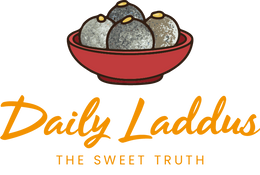- Peanuts are rich in energy (567 calories per 100 g) and contain health benefiting nutrients, minerals, antioxidants and vitamins that are essential for optimum health.
- They compose sufficient levels of monounsaturated fatty acids (MUFA), especially oleic acid. MUFA helps lower LDL or "bad cholesterol" and increases HDL or "good cholesterol” level in the blood. Research studies suggest that the Mediterranean diet which is rich in monounsaturated fatty acids help prevent coronary artery disease and stroke risk by favoring healthy serum lipid profile.
- Peanut kernels are a good source of dietary protein; compose fine quality amino acids that are essential for growth and development.
- Research studies have shown that peanuts contain high concentrations of polyphenolic antioxidants, primarilyp-coumaric acid. This compound has been thought to reduce the risk of stomach cancer by limiting the formation of carcinogenic nitrosamines in the stomach.
- Peanuts are an excellent source ofresveratrol, another polyphenolic antioxidant. Resveratrol has been found to have a protective function against cancers, heart disease, degenerative nerve disease, Alzheimer's disease, and viral/fungal infections.
- Furthermore, studies suggest thatresveratrol may reduce stroke risk through altering molecular mechanisms in the blood vessels (reducing susceptibility to vascular damage through decreased activity of angiotensin, a systemic hormone responsible for blood vessel constriction that would elevate blood pressure), and by increasing production of vasodilator hormone, nitric oxide.
- Recent research studies suggest that roasting/boiling enhances antioxidant bioavailability in the peanuts. It has been found that boiled peanuts have two and four-fold increase in isoflavone antioxidantsbiochanin-A and genistein content, respectively. (Journal of agricultural and food chemistry).
- The kernels are an excellent source ofvitamin-E(α -tocopherol); containing about 8 g per100 g. vitamin-E is a powerful lipid soluble antioxidant which helps maintain the integrity of mucosa and skin by protecting from harmful oxygen free radicals.
- The nuts are packed with many important B-complex groups of vitamins such as riboflavin, niacin, thiamin, pantothenic acid, vitamin B-6, andfolates. 100 g of peanuts provide about 85% of RDI of niacin, which contributes to health and blood flow to the brain.
- The nuts are a rich source of minerals like copper, manganese, potassium, calcium, iron, magnesium, zinc, and selenium.
- Choosing a selection results in a full page refresh.
- Press the space key then arrow keys to make a selection.
- Use left/right arrows to navigate the slideshow or swipe left/right if using a mobile device
